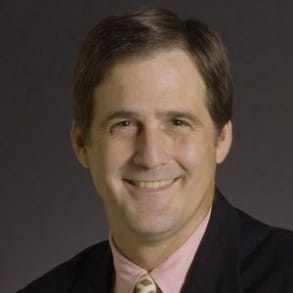Orthopaedic surgeon Edward McFarland shares his insights on two new studies focusing on shoulder arthroplasty. Watch now to learn about these techniques for treating patients with shoulder injuries.
I'm Ed McFarland. I'm the director of the vision of shoulder surgery here at Johns Hopkins. Uh, I'm here to discuss and introduce two studies that we have coming out, which I think are gonna be game changers in the treatment of shoulder Arthur plastic, particularly when there are shoulders with very little clinic like bone. The first study is a magnetic resonance imaging study which shows great promise in making the diagnosis of infections and shoulder Arthur Classy regular memories, you know, has too much scatter. But these sequences provided a great opportunity to definitively diagnosis shoulder Arthur plastic infections. So we're very excited about that. The second thing is our philosophy on treating bone loss in the Illinois. As you know, many people want to bone graft or use augmented components. We found that using computer modeling were able to determine which patients could be successfully treated with the centric reaming. So our study comes out soon, which demonstrates that eccentric dreaming can lead to very good results without other things like audience or bone grafting. So, for example, this is a B to Glenn oId, and you can see that with with, uh, reaming you can actually get pretty good coverage despite not having very good bone, particularly post eerily so reaming the high side actually could be quite successful in these patients. We found that the vast majority of patients, even with severe bone loss, can reliably be, uh, implanted without other techniques. If patients have too much bone that you can't read them down flat. Then we found that using these custom components, such as in this Glenn oId, which has severe bone loss after a failed cemented Arthur Plasticky, you can have a custom Glenn oId Made, which directs the bone the screws into the bone where it's present. It makes a very stable implant. Uh, follow ups a short for this, but it holds great promise for a second stage. Or for patients who have bone loss is too great for justice centric dreaming. So we look forward Thio talking with you. If you have any questions or want to discuss this further, please feel free. Thio, Call me thank you



